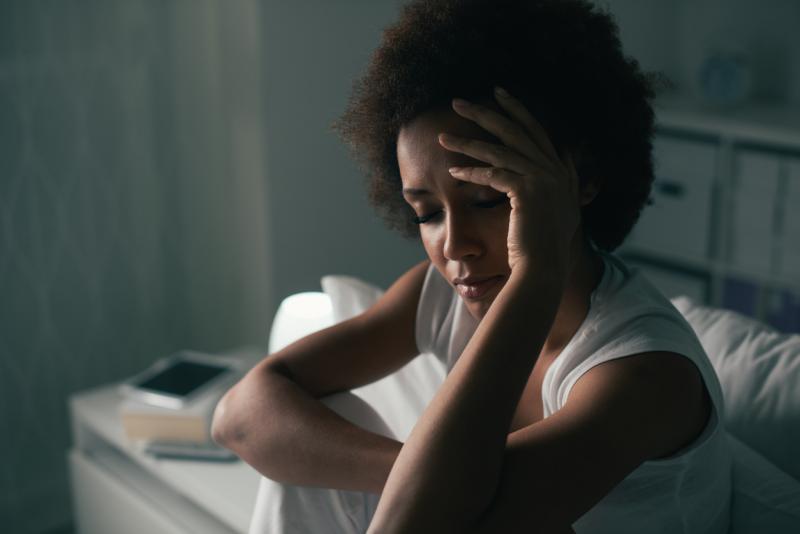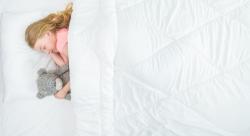It is recommended that adults get between 7-9 hours of sleep to maintain physical and mental well-being. Public Health England estimate that £30 billion pounds are lost every year due to lost sleep, We spend 1/3 of our lives sleeping and better sleep is the biggest contributor to living better. ‘Sleep hygiene ‘has become a common phrase but what does it actually mean? It is all about creating a bedtime routine for a good night’s sleep. publichealthmatters.blog.gov.uk
Sleep hygiene - Top Tips for a brilliant night’s sleep
- Just like your children, have a set bedtime. No sleep routine confuses the body making it harder to fall asleep. Set a time to go to bed and wake up and try to stick to it.
- Have a pre sleep routine. A warm bath, and small regular habits like cleaning your teeth can become triggers that relax both the mind and body, preparing it to get ready for sleep.
- Create an environment for sleep - Make your bed a place for sleep and intimacy. Invest in blackout curtains. Darkness stimulates your circadian rhythm, your biological clock, your mind recognises the darkness as a cue to sleeping.
- Declutter and ditch technology. The blue light from technology keeps you awake as it confuses the mind into thinking it is daytime by supressing melatonin, a happy chemical in the brain which regulates your sleep – wake cycle. Throw away what you do not use and create a calm and tranquil environment that says sleep.
- Meditate before you go to bed. Find a mediation technique that you like and practice for 10 minutes before you go to bed. Becoming more aware of your thoughts, feelings and body sensations helps you to let go of what might keep you awake at night.
- Breathe - when you are lying in bed, take a few slow deep breathes, repeating for as long as you choose. Breathing quietens the chattering mind, reduces your heart rate and helps to relax your body.
- A little light Yoga or Qi Gong - a few gentle stretches half an hour to an hour before you go to bed can help your body to relax, reducing tension, getting you ready for sleep.
- Have a notebook by the side of your bed. If you wake with worries, note the worries down and write next to the worry “dealing with it” This may help you to let go and drift into sleep.
- Gratitude diary – before you go to bed, remind yourself of 3 things that happened that day which you are grateful for. They don’t have to be grand, they could be a smile, a cup of tea or the smell of coffee in the morning, your children, grandchildren, pets, friends, family or colleagues, a random kind act, a sunset or a quiet moment. Put a smile on your face before you go to bed.
- Cut out caffeine, one of sleeps saboteurs, in the second half of your day, exercise and eat well during the day. Make a date with sleep and invest in your well-being by preparing yourself for sleep.
- Some foods are said to promote sleep. These include foods containing tryptophan which releases serotonin, a happy chemical in the brain that regulates sleep, mood and appetite. Foods high in tryptophan and serotonin include raspberries, cherries and almonds. Foods containing melatonin another happy chemical in the brain, regulate the sleep-wake cycle and these are found in bananas and honey. Slow release carbohydrates such as oats and whole-wheat bread can improve sleep by regulating blood sugars throughout the night leaving you less likely to wake up in the middle of the night hungry.
- Ditch the takeaway - fatty foods are heavy on the stomach, stimulating acid, leading to heartburn, leading to a disturbed night’s sleep.
- We all have the occasional bad night’s sleep. Don’t worry about it, this might prevent you from sleeping. If you find that you are lying in bed worrying about not sleeping, get up and go into another room and do something to distract your mind, perhaps try a breathing exercise, maybe a few light stretches, read, knit, try mindful colouring or gentle meditation or breathing exercises and when you feel sleepy, go back to bed.
Jane Bozier is a mental health nurse and sleep expert, whose guided imagery exercises are featured in new sleep app, Rise – available to download from the App Store and Google Play.









